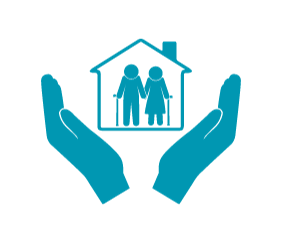As we age, it becomes increasingly important to ensure that we are meeting the emotional needs of our elderly loved ones. In order to provide them with the support and care they deserve, it is crucial to understand what these emotional needs are. In this article, we will explore and outline the four basic emotional needs of the elderly, allowing you to enhance their well-being and create a nurturing environment that promotes happiness and fulfillment.
Physical Well-being
Nutrition and hydration
Ensuring proper nutrition and hydration is vital for the physical well-being of the elderly. As an older adult, you should focus on maintaining a balanced diet that includes a variety of fruits, vegetables, whole grains, and lean proteins. It’s important to stay hydrated by drinking an adequate amount of water throughout the day. Proper nutrition and hydration can help prevent diseases, boost your immune system, and provide you with the energy you need to go about your daily activities.
Exercise and mobility
Keeping your body active and maintaining mobility is crucial for your overall well-being. Engaging in regular exercise can help improve your strength, balance, and flexibility. It can also reduce the risk of chronic conditions such as heart disease, diabetes, and osteoporosis. Try incorporating activities like walking, swimming, or yoga into your routine. Remember to consult with your healthcare provider before starting any new exercise program to ensure it’s safe and suitable for you.
Healthcare and medication
Taking care of your health should be a priority. Regular check-ups with healthcare professionals can help you stay on top of any potential issues and proactively manage your health. It’s important to follow the recommended screenings for your age group, such as mammograms and colonoscopies, to detect any problems early on. Additionally, make sure to take your medications as prescribed by your doctor and keep track of any potential interactions or side effects. Seeking professional medical advice and adhering to prescribed treatments can greatly contribute to your well-being.
Safety and security
Feeling safe and secure in your environment is essential to your overall well-being. Take steps to ensure your home is a safe place by installing proper lighting, handrails, and non-slip mats. Consider using a medical alert system, especially if you live alone, to have immediate access to help in case of an emergency. It’s also important to be mindful of your surroundings when out and about, such as being aware of potential hazards or scams. By prioritizing your safety and security, you can have peace of mind and focus on enjoying life to the fullest.
Social Connection
Family and friends
Maintaining strong relationships with your family and friends can have a significant impact on your emotional well-being. Spend quality time with your loved ones and cherish the moments you have together. Connect with them through regular phone calls, video chats, or even in-person visits if possible. Sharing stories, memories, and experiences can help foster a sense of belonging and provide emotional support during challenging times.
Community involvement
Getting involved in your community offers valuable opportunities for social interaction and a sense of purpose. Join local clubs, organizations, or volunteer at a nearby charity. Participating in community activities not only allows you to connect with others but also gives you a chance to give back and make a positive impact on the lives of those around you. Engaging with your community can lead to new friendships, increased social support, and a greater sense of belonging.
Social activities
Engaging in social activities can help combat feelings of loneliness and isolation. Explore different hobbies or interests that align with your preferences. Join a book club, art class, or gardening group to meet like-minded individuals who share similar passions. By participating in social activities, you can expand your social circle, create meaningful connections, and enhance your overall well-being.
Support groups
Support groups provide a safe space to connect with others who may be experiencing similar challenges and emotions. Whether it’s a support group focused on a particular health condition, grief, or caregiving, these groups offer a sense of understanding and empathy. Sharing your thoughts, concerns, and insights can help alleviate feelings of loneliness and provide emotional support. Consider reaching out to local organizations or online communities to find a support group that suits your needs.
Sense of Purpose
Engaging in meaningful activities
Having a sense of purpose can greatly enhance your emotional well-being. Engage in activities that bring you joy, fulfillment, and a sense of accomplishment. Whether it’s pursuing a hobby, learning a new skill, or even taking up a part-time job or volunteer work, finding meaning in your daily life can provide a sense of purpose and fulfillment.
Volunteering or mentoring
Giving back to others through volunteering or mentoring can be incredibly rewarding. Use your skills, knowledge, and life experiences to help others in need. Whether it’s volunteering at a local shelter, tutoring a student, or mentoring someone in your field of expertise, these activities can bring a sense of purpose, fulfillment, and make a positive impact on both your life and the lives of others.
Pursuing hobbies or passions
Exploring and nurturing your hobbies and passions can help cultivate a sense of purpose and joy in your life. Whether it’s gardening, painting, playing a musical instrument, or even cooking, carve out time in your schedule to engage in activities that bring you genuine happiness. Pursuing your hobbies not only provides a sense of accomplishment but also allows you to tap into your creativity, maintain cognitive function, and experience a renewed sense of purpose.
Continuing education
Learning should never stop, regardless of age. Engaging in continued education, whether through formal classes or online courses, can provide intellectual stimulation and a sense of personal growth. Explore subjects that interest you, attend workshops, or enroll in classes at local community colleges or online platforms. Continuing education allows you to expand your knowledge base, stay mentally sharp, and maintain a sense of purpose throughout your life.
Autonomy and Independence
Maintaining decision-making abilities
Retaining control over your own decision-making is crucial to maintaining autonomy and independence. Advocate for yourself and ensure your voice is heard in all aspects of your life, including healthcare decisions, financial choices, and daily activities. Seek support from loved ones, healthcare professionals, or legal advisors if needed, to understand your rights and options when making important decisions.
Respecting personal choices
Respecting and honoring your personal choices is vital for your emotional well-being. Whether it’s regarding your living arrangements, healthcare decisions, or lifestyle choices, it’s essential to surround yourself with individuals who support and validate your choices. Recognize that your preferences may change over time, and it’s important to communicate any changes to those around you, ensuring your desires and autonomy are respected.
Encouraging self-care
Prioritizing self-care is essential for maintaining autonomy and independence. Take the time to focus on your physical, emotional, and mental well-being. Engage in activities that promote relaxation, such as meditation, practicing mindfulness, or enjoying a hobby. Listen to your body and prioritize rest when needed. Remember, by taking care of yourself, you are ensuring that you have the energy and ability to continue living life on your terms.
Promoting freedom and privacy
Respecting your need for freedom and privacy is crucial for maintaining autonomy and independence. Ensure you have spaces and times in your routine where you can be alone and have personal time. Communicate your boundaries and preferences to those around you, ensuring they understand and respect your need for privacy. By promoting freedom and privacy, you can feel empowered and in control of your own life.
In conclusion, prioritizing physical well-being, social connection, a sense of purpose, and autonomy and independence can greatly contribute to the emotional well-being of older adults. By focusing on these aspects of your life, you can lead a fulfilling, meaningful, and joyful life as you age. Remember, it’s never too late to make positive changes and take steps towards improving your overall well-being. Embrace the opportunities available to you and cherish each day as an opportunity to live life to its fullest.


